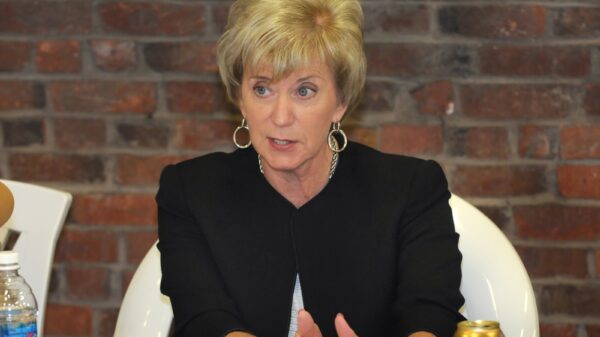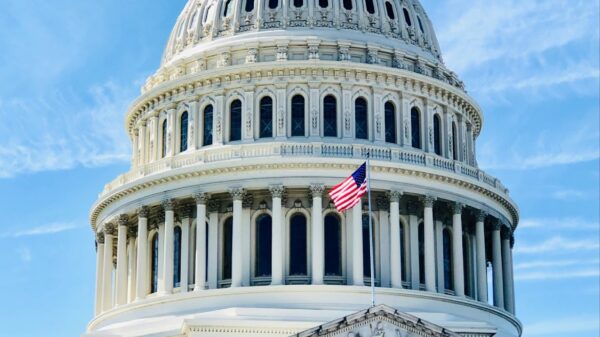
After more than 100 years of voting, Black Americans continue to navigate against voter suppression in the present day, according to the National Education Association (NEA).
With an increase in voter suppression laws in the 21st century continuing to target people of color, the NEA is considering whether or not race-based prevention of voting is the New Jim Crow.
According to the Carnegie Corporation of New York, voter suppression tactics appear in the form of voter roll purges, voter ID requirements, gerrymandering and limits to voting hours or early voting. The hindrances aim to essentially make voting inaccessible as the conditions disproportionately affect people with lower incomes, communities of color and the youth.
Based on reports from the Pew Research Center, in the upcoming election cycle, Black-eligible voters are expected to reach 34.4 million in November 2024, an increase of 7 percent since 2020.
Although the variety of barriers that have been placed upon the Black community were intended to promote disenfranchisement, data from the Pew Research Center has shown that Black Americans are willing to use the election polls to fight back.
Black voters also can be key players in swing states such as Georgia and Michigan.
A poll conducted by the Howard University Initiative on Public Opinion (HIPO) displayed the statistics among Black registered voters in Michigan, with 83 percent voting in the primary election and 91 percent in the general elections.
When asked for reasons why people do not plan to vote in the 2024 election, 34 percent of Michigan residents expressed that they do not think it matters if they vote or not, and 26 percent do not think their vote changes anything.
Though most Michigan voters are planning to vote along party lines, 18 percent of voters intend to vote independently, while 10 percent align with no party at all.
With over half of Michigan’s Black registered voters affiliated with the Democratic party, there is a strong chance that these voters can once again be an essential part of the state majority being Democratic or Republican.
Dominique Mitchell is the HBCU coordinator of the Fair Election Center’s campus vote project and discussed how the history of Black voting rights influences present-day voting.
“The history of Black voting rights and their kind of desire to vote changes — with Gen X and late baby boomers, it’s a privilege to vote and cast your ballot, whereas with Millennials and Gen Z, it’s their prerogative to vote,” Mitchell said.
“Our votes matter. If it did not matter, why would they try to suppress it?” Mitchell asked.
The fight for Black suffrage in the U.S. began with the founding of the nation. The foundation of America upheld the principle that African Americans were not identified as people but as property.
Under this sentiment, Black people did not possess the right to vote nor the ability to express any concern with the state of the country’s democracy. Between 1865 and 1870, the 13th, 14th and 15th amendments were passed to establish the legal and political status of African Americans.
The Reconstruction era of history was a push towards liberation where the Black community gained the opportunity to have familiar faces at the polls, yet it did not confirm or secure their place within society.
With concern for voter turnout among the youth in the upcoming 2024 election season, there is a question of why young people are not showing up to the polls.
Kendall Sims, a senior political science major at Howard University from Atlanta, Georgia, shared his thoughts on younger citizens’ apprehension when it comes to electoral processes and highlighted the importance of voting.
“Mostly everything in our economy is regulated by the government, so being involved in the process, especially as a young African American, is extremely important and necessary,” Sims said.
Dylan Sellers, who serves as the national HBCU director of Fair Election Center’s campus vote project, believes that regardless of what happens during any voting season, exercising the right to vote will never be a decision to regret.
“Even in races where it feels as if my vote doesn’t count, they can’t say ‘I wasn’t here.’ They can’t take my presence or my voice because I showed up,” Sellers said. “There’s something very powerful about showing up and demanding my voice be heard. Whether it goes my way or not, my voice counts.”
The right to vote was not synonymous with the ability to vote. It was the constitutional right of the African American man to cast a ballot at the polls, but across states, barriers such as poll taxes, literacy tests and other intimidation tactics were set in place to deter Black men from voting.
Through the passage of the 13th and 14th Amendments, African Americans were freed from slavery and granted citizenship. The 15th Amendment specifically focused on the men of America, as no man would be denied the right to vote based on “race, color or previous condition of servitude.”
A popular method to encourage the disenfranchisement of Black men was referred to as the grandfather clause. The use of this clause restricted voting rights to men whose male ancestors possessed the right to vote, ultimately denying Black men their voting rights.
Black women also faced repeated hindrances from the system, as they were tasked with battling discriminatory practices that existed due to the intersectionality of their race and gender.
Once legally given the right to vote in 1920 through the 19th Amendment, which prohibited denying the right to vote based on sex, Black women faced the same plight as their fathers, husbands, brothers and sons – a hindrance to voting rights through a systemic approach.
After a long and hard-fought battle against the institutions and practices that made voting unattainable, Black Americans gained the ability to vote after the Voting Rights Act of 1965.
Dr. Valethia Watkins is an Africana studies professor and director of graduate women’s studies at Howard University and discussed how voting is a privilege as opposed to a right.
“Voting has not been formulated as a fundamental inherent right of citizenship, it is a statutory right that our people flock to make a privilege that is extended to us,” Watkins said.
Copy edited by Alana Matthew
































